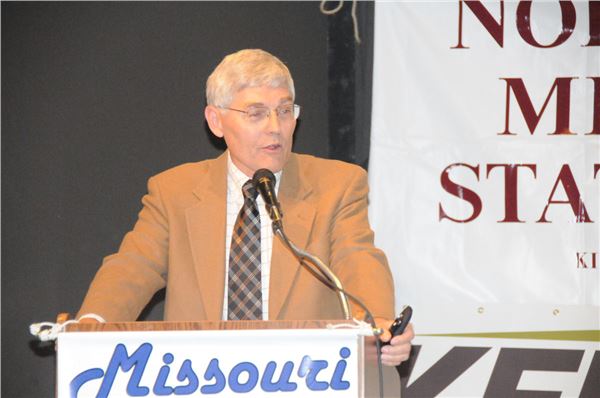Land Prices Peaking; Cattle Still On The Rise
KIRKSVILLE, MO.
Farmland prices have likely peaked, but expect cattle prices to continue upward. That was the message from Ron Plain, University of Missouri Extension agricultural economist, in his keynote address at the 2014 Missouri Livestock Symposium in Kirksville.
Plain says farmland prices depend on interest rates and returns that can be generated by that land. Interest rates are steady but returns per acre have declined as crop prices have dropped.
“With the high crop prices we saw the last few years, we bid up cropland and it’s probably as high as it’s going to go for now,” Plain says. “For cropland prices the peak is here because we’ve cut corn and soybean prices in half.”

Ron Plain, University of Missouri Extension agricultural economist, presents “When Will Land and Cattle Prices Peak?” at the 2014 Missouri Livestock Symposium in Kirksville.
Credit: Jason Vance photo
But pastureland prices, which depend on cattle prices and how much producers are earning, continue to increase.
“We had record prices for cattle this year but we are expecting higher prices for next year, so expect both cash rent and sale prices for pastureland to be higher in 2015,” Plain says. “As far as the peak in cattle prices, maybe 2016, and the peak in pastureland could be 2016 or 2017.”
However, weather could postpone that peak. Dry conditions reducing grass production could keep cattle prices high. Plain says a drought would cause producers to sell more heifers and cows, further delaying an increase in the cattle herd.
“With chickens, it’s 10 weeks from breeding to slaughter,” Plain says. “For cattle it’s nine months for gestation; they have calves one at a time, and then a year and a half to two to raise that calf. So a nearly three-year production cycle makes for a pretty slow change.” ∆